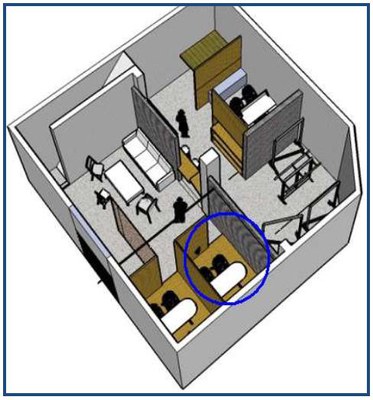Migration crisis - Reconnecting families
Context: Migration crisis
Start date: 01/02/2012
End date: 30/06/2015
Areas of intervention: Guadalajara
Activities:
- Humanitarian calling service
- Information diffusion
200 migrants benefiting from calls each month
Context
Migration through Mexico has developed over the years. These migrants in transit are caught up in a constant humanitarian crisis, not only because of a lack of food, water, clothing, and shelter, but also because of the absence of effective policies and actions aimed at addressing forced migration roots in the countries of origin.
Organised crime, violence and kidnapping are among the many dangers facing migrant populations in Central and South America. Every year, hundreds of people are reported missing. In 2009, the National Human Rights Commission (NHRC) reported that in just 6 months there were 9,758 kidnappings. The average ransom is estimated at $2,500 dollars, but can vary between $1,500 and $5,000 dollars.
Implementation
In 2010, FM4 Paso Libre, a Mexican organisation based in Guadalajara, opened a Migrant Reception Centre (CAM) offering various services such as clothing and food distribution, basic medical care and hygiene products and administrative follow-up. In 2012, the association reorganised the CAM to make it more functional and user-friendly.
Migrants can often face difficulties in accessing new technologies and benefiting from their advantages, especially in terms of accessible communication costs. The establishment of a new humanitarian calling service met this need.
FM4 Paso Libre contacted the TSF’s base in the Americas in order to define and implement the necessary technologies for the realisation of this collaborative project called "Lazos Libres" (Free Links). The objective was to offer calls to migrants hosted at the CAM. Set up in 2012, the project was expanded and renamed "Conectando Vidas" in 2014.
Humanitarian calling
A room was specially equipped with two modules, one for the registration and one for the call, to ensure the confidentiality of the conversation. The computer equipment and broadband Internet connection required for the use of the service was supported by TSF.

The CAM applied a specific procedure for the follow-up of each migrant: registration, donation of clothing, hygiene, food, rest and medical follow-up. Calls were then proposed according to defined criteria such as the vulnerability of the concerned individual, the duration of his journey, the duration without having communicated with his relatives and the distance from his hometown. Particular attention was given to groups more exposed to violence, such as unaccompanied minors, women and the elderly, people who had already been victims of kidnapping or trafficking, accidents, and asylum seekers.
Guadalajara being halfway across the western route of the country, this service was all the more relevant taking into consideration its emotional, psychological and logistical impact.
In parallel, FM4 staff could use emergency telephone equipment to:
- Contact a migrant's family to report a health problem, hospitalisation or detention;
- Contact other organisations to set up specific collaborations.
Information diffusion
The "Conectando Vidas" project was a continuation of the "Lazos Libres", seeing a system for the safety of migrants added to the call service. The system operated with Voice over Internet Protocol (VOIP) technology offering low-cost international communications.
This project aimed at strengthening the process of migrant registration in the Migrant Defence Organisations Documentation Network (REDODEM) database. The database is connected to more than 16 migrant reception centres throughout Mexico, and allows the recording and documentation of migration flows and human rights violations. It also facilitates the rapid tracking of people who have suffered an accident or are missing.
Thanks to this programme, more than 200 migrants per month were able to restore links with their families and inform them of their situation.

















